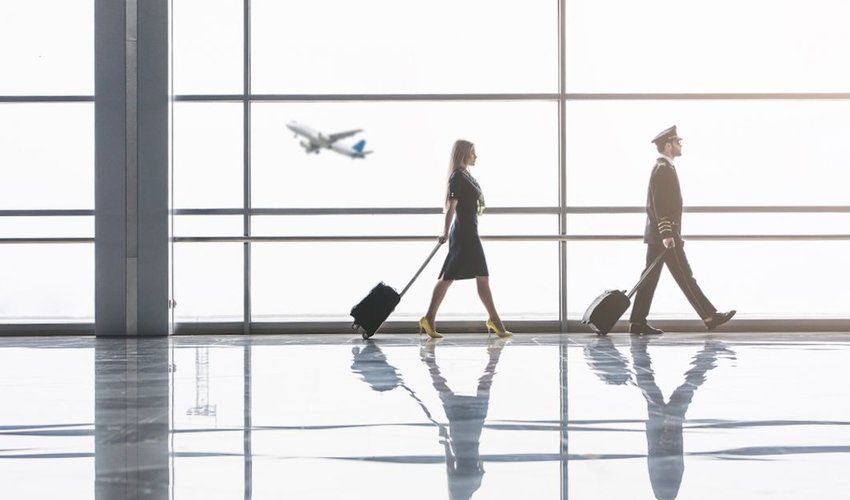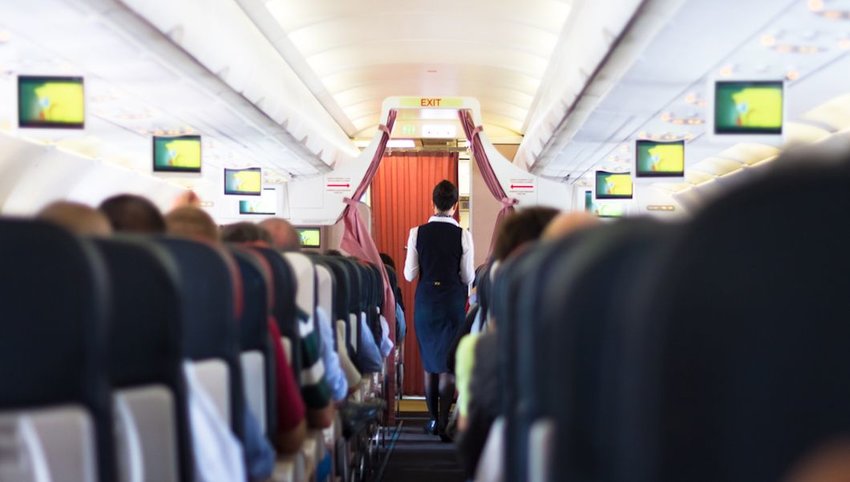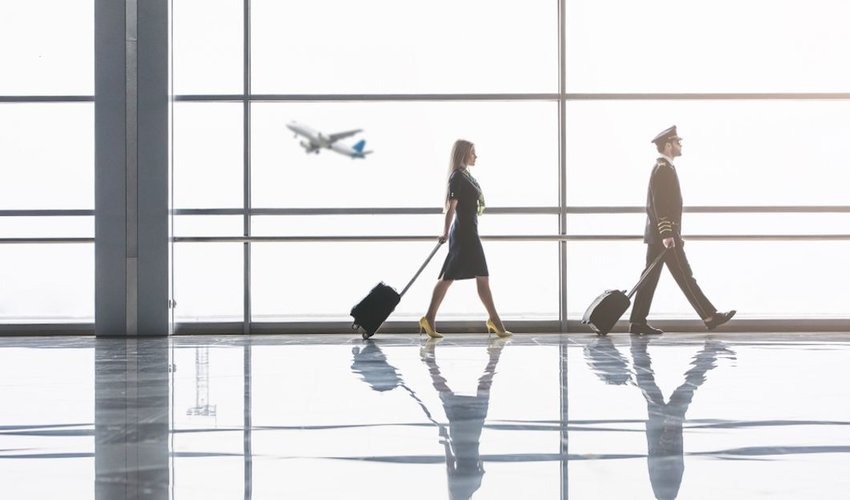It's no secret that flight attendants will typically go above and beyond serving you diet coke and pretzels and showing you how to properly buckle your seatbelt. This flight attendant's heartwarming note to a deaf passenger recently went viral, and there have been many more incidents of men and women going the extra mile to earn a smile or two. Flying can be stressful, after all. We know the uniformed men and women have some secrets up their sleeves, so we asked one about the do's and don'ts of air travel.
Frontier Airlines flight attendant Sami C. was happy to share how she copes with impatient flyers — and what she thinks passengers ought to know about her profession.
Do

Double-check the little things: According to Citron, you should always know where your phone, boarding pass, wallet/identification, and passport are at all times. It might seem like a no-brainer, but Citron often finds phones left in back pockets of plane seats, watches passengers panic about missing boarding passes before boarding, and sees phones left charging in wall sockets right before departure. The solution? Get a small purse or a bag that holds these items. "Organization is key," she says.
Bring food: Frontier, like many other airlines, won't feed you on a short flight, so if you're hungry for more than just water, you might want to purchase something at the airport. "Some people aren’t happy, so you should just bring a snack or a drink with you," Citron said.
Plan ahead: Even flight attendants overpack, which is reassuring to hear, but Citron's gotten slightly better at structuring her suitcase over time. Leave the heavy coats at home and plan your outfits in advance. You should also downsize if possible. "A lot of times people bring heavy laptops. If they could just minimize to an iPad or a little tablet, those are definitely beneficial," she said.
Stay in your time zone: According to Citron, flight attendants for Frontier can fly six days in a row for up to 14 hours straight per day. That's a lot of time in the air, and changing time zones can really throw Citron off if she's not careful. Nobody likes jet lag. That's why Citron recommends sticking to your previous time zone (for a short trip) or adjusting to the new one right away (for a longer trip). Since she always returns to her home base airport at the end of a long day, Citron typically sets her Apple Watch to airplane mode. "It stays on Eastern Standard Time, so I know when to eat dinner and when not to eat dinner. At first, I was just eating at all hours. It’s important to stay in your time zone and stick to your routine," she said.
Stay distracted: If turbulence freaks you out, that's okay, but Citron says you should avoid focusing on it too much. If you're bored, your mind is likely to become panicked, so be sure to distract it. "Bring an iPad, bring a movie, crochet. Keep your mind busy and you won’t be thinking about it as much," she said.
Don't

Wait to use the bathroom: We're not surprised to hear that airplane bathrooms are disgusting. Citron says that every flight attendant's number one pet peeve is when a passenger makes a beeline for the bathroom at the back of the plane right after boarding. Her advice? Go in the airport instead. "You are leaving a place that has clean bathrooms to go into a stall that hasn’t been cleaned since the night before. Why is everyone waiting until they board the plane? I think that bothers every flight attendant," she said.
Make assumptions: Citron knows it's easy to become frustrated when the plane has been sitting on the tarmac long after your scheduled takeoff time, but that doesn't mean your flight attendant knows the reason behind the delay. "A lot of people think that flight attendants know what’s going on, but flight attendants are the last people to know anything. Sometimes the passengers will know before we know that a flight is canceled," she said. "We’re all in this together. We’re in the same boat."
Ignore instructions: Last but not least, don't forget to listen to your flight attendant. "We are primarily there for your safety — not just to serve food. People may think we're being mean when we tell them that the seatbelt sign is on and that they shouldn’t be up in the aisle, but we are only looking out for their safety and the safety of those around them," she said.

